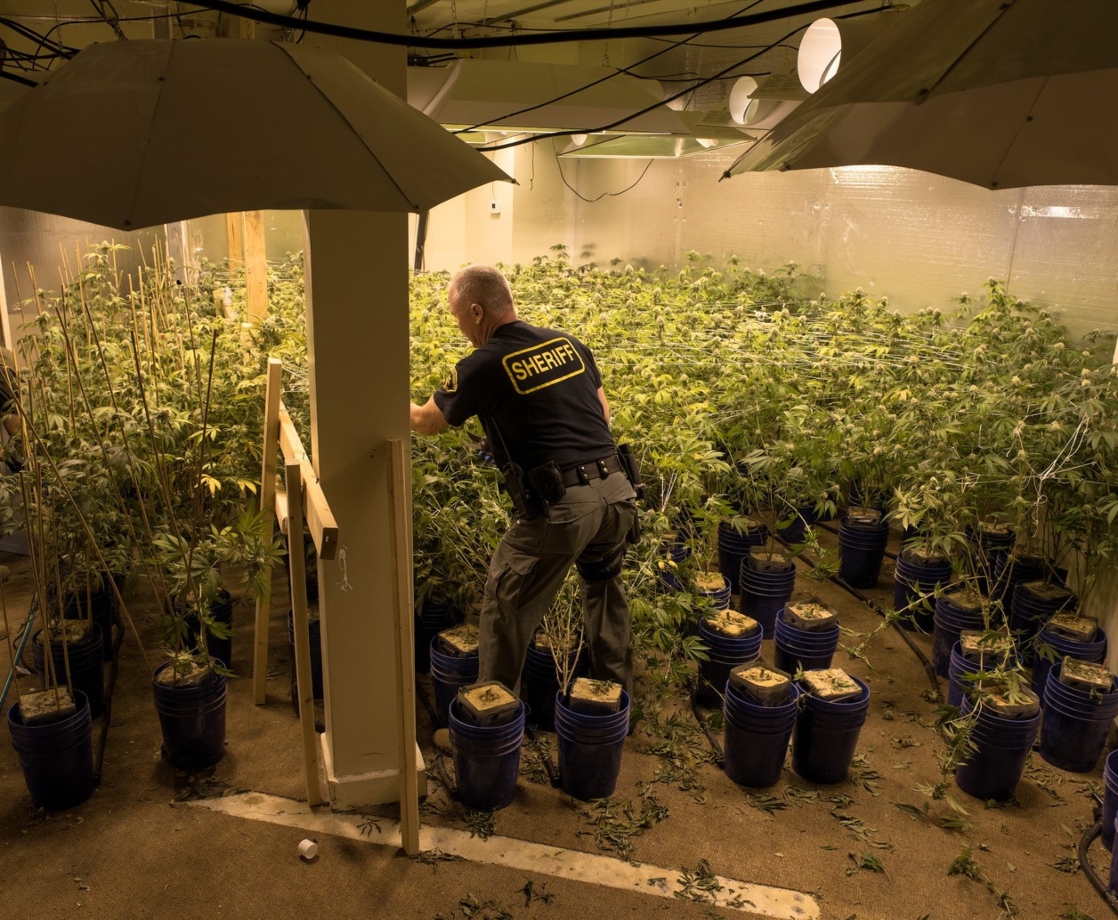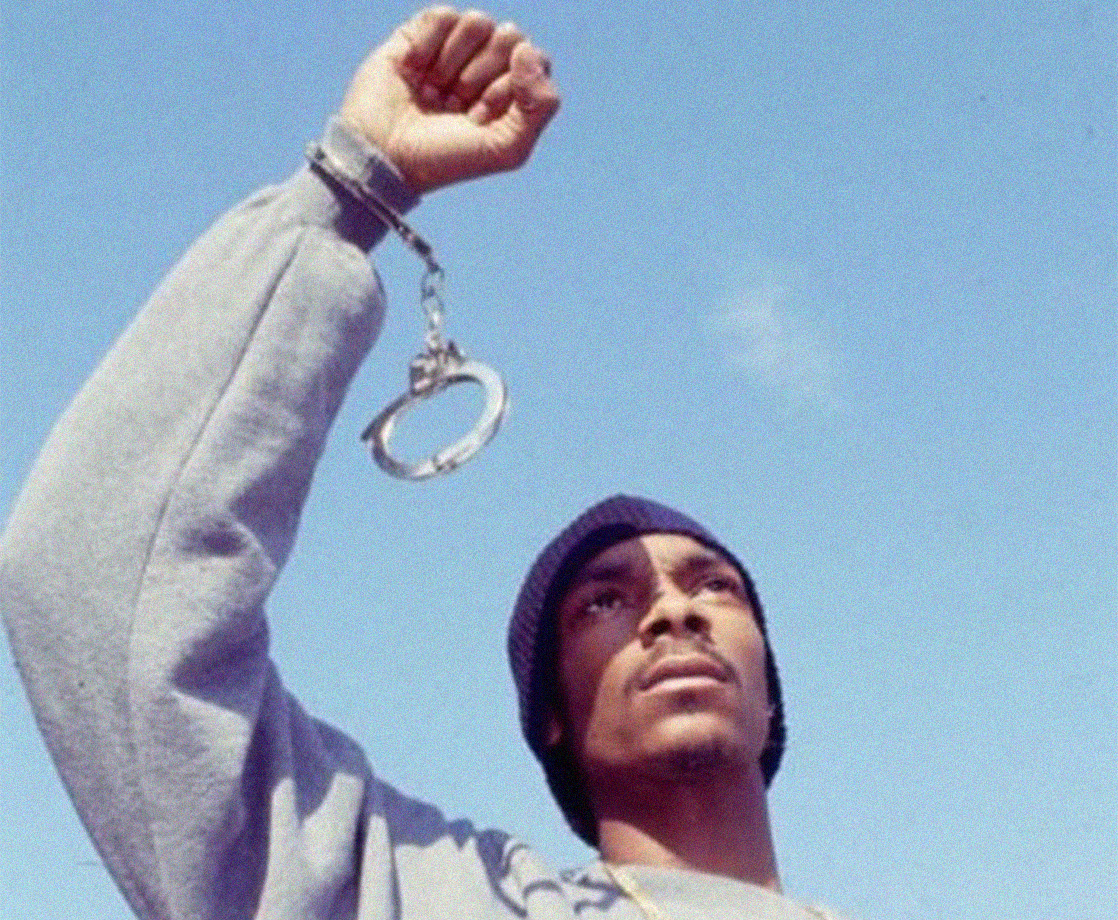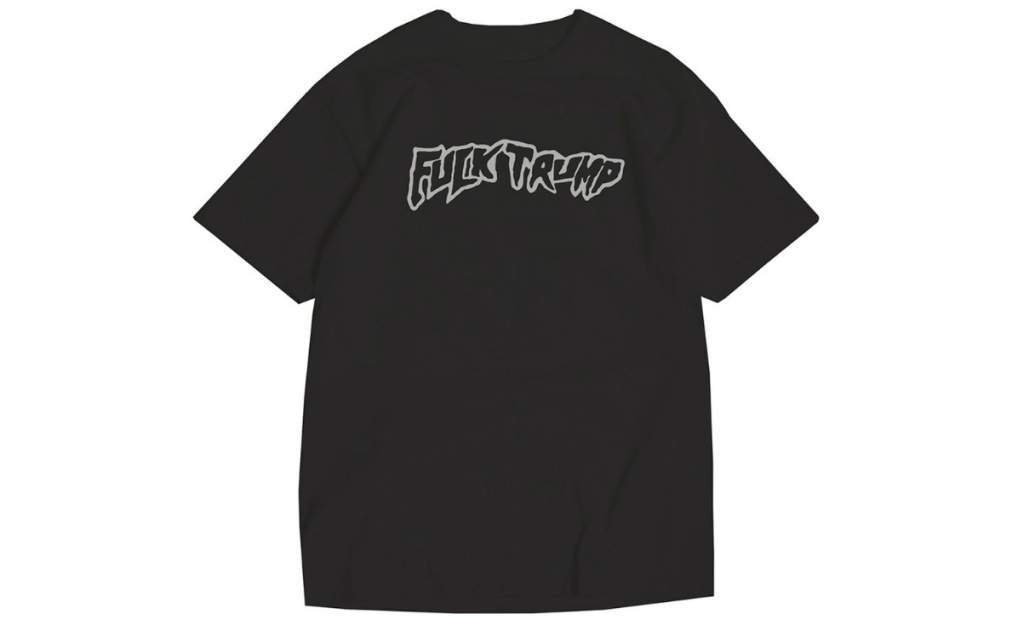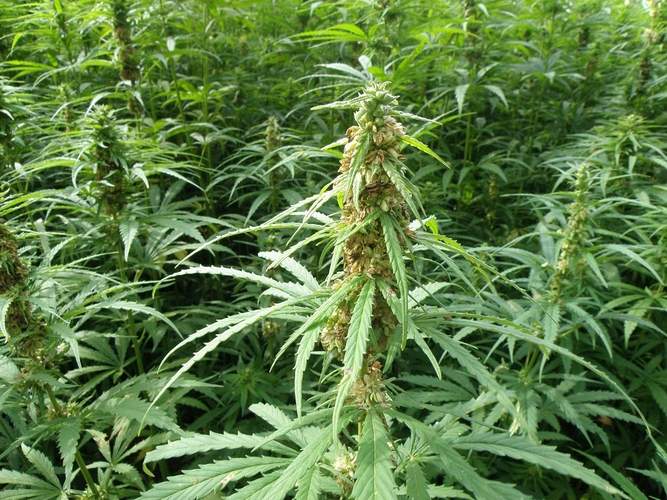Since legalization, law enforcement in California has aimed to destroy the state’s illegal weed market. Their reasoning is to give the newly legal retail market a chance to thrive. But are the incessant raids really accomplishing that?
Local police departments raid illegal pot farms across California on a weekly — sometimes daily — basis. Enforcement has even enlisted the National Guard to help take out black market weed operations. Just last week, Riverside County cops seized 47 tons of weed from several black market grow sites and shut down an unlicensed hash oil lab. The state Department of Fish and Wildlife reported that they seized 1.6 million illegally-grown cannabis plants last year, which is up from 700,000 in 2017.
City and state authorities have also made a concentrated effort to shut down illegal pot sellers. Donnie Anderson, co-founder of the Southern California Coalition, told Marijuana Business Daily that the Los Angeles Police Department raids illegal pot shops almost “every day.” Since May 2018, the LA City Attorney’s Office has filed 312 cases against unlicensed shops and charged 1,199 defendants with misdemeanor charges relating to illegal weed sales.
Since last January, the California Bureau of Cannabis Control (BCC) has sent 4,000 cease-and-desist letters to unlicensed businesses, executed 58 search warrants for suspected illegal operations, and seized over $30 million worth of illegally-grown weed products. Last month, Governor Gavin Newsom signed a new law allowing regulators to levy a $30,000-a-day fine against any business that violates the state’s cannabis business regulations.
Yet, in spite of these valiant (read: expensive) efforts, the state’s black market is still going strong. Weed data firm BDS Analytics estimates that as of last June (yes, as in two months ago), nearly three-quarters of all weed purchases in California were made from the black market.
Gallery — Fuck-Tons of Weed No One Is Smoking (Except for Cops):
The only other adult-use state that has a larger percentage of black market sales is Massachusetts, at 77 percent. Around half of all cannabis sales in Washington and Oregon come from the black market, and Colorado has managed to keep its percentage of black market sales as low as 34 percent.
Industry insiders believe that any attempts to destroy the black market by brute force alone are doomed to fail. “Not only do I think it’s not going to have any sort of effect on the duty-free market, I think it’s a waste of money,” said Sacramento-based industry consultant Jackie McGowan to MJ Biz Daily. “If we were to lower taxes and put (illegal operators) out of business through an economic strategy, that’s how we win.”
“We’ve never been able to enforce our way out of illegal cannabis operations,” said Lindsay Robinson, executive director of the California Cannabis Industry Association. “We’ve struggled with that for 30 years. That’s a part of the puzzle that needs to be put in place with these other pieces… in order to have a real substantial effect.”
It is widely accepted that the state’s black market is able to remain profitable because illegal growers are able to vastly undercut the prices of legal weed, as they are not subject to the same heavy taxes, fees, and testing guidelines imposed by the state for legal operations.
Robinson believes the most effective solution to the problem would be a “multipronged approach” that combines law enforcement efforts with a decrease in cannabis taxes and fees. She also pointed out that around two-thirds of all California municipalities have banned legal pot businesses, allowing black market operations to take hold in these areas.
Even if the state were able to make its legal market more competitive against the black market, it is likely that illegal growers would still continue growing weed to supply the strong demand for weed in prohibition states. Because of this, the federal legalization of cannabis might be the only cure to California’s black market problem.











